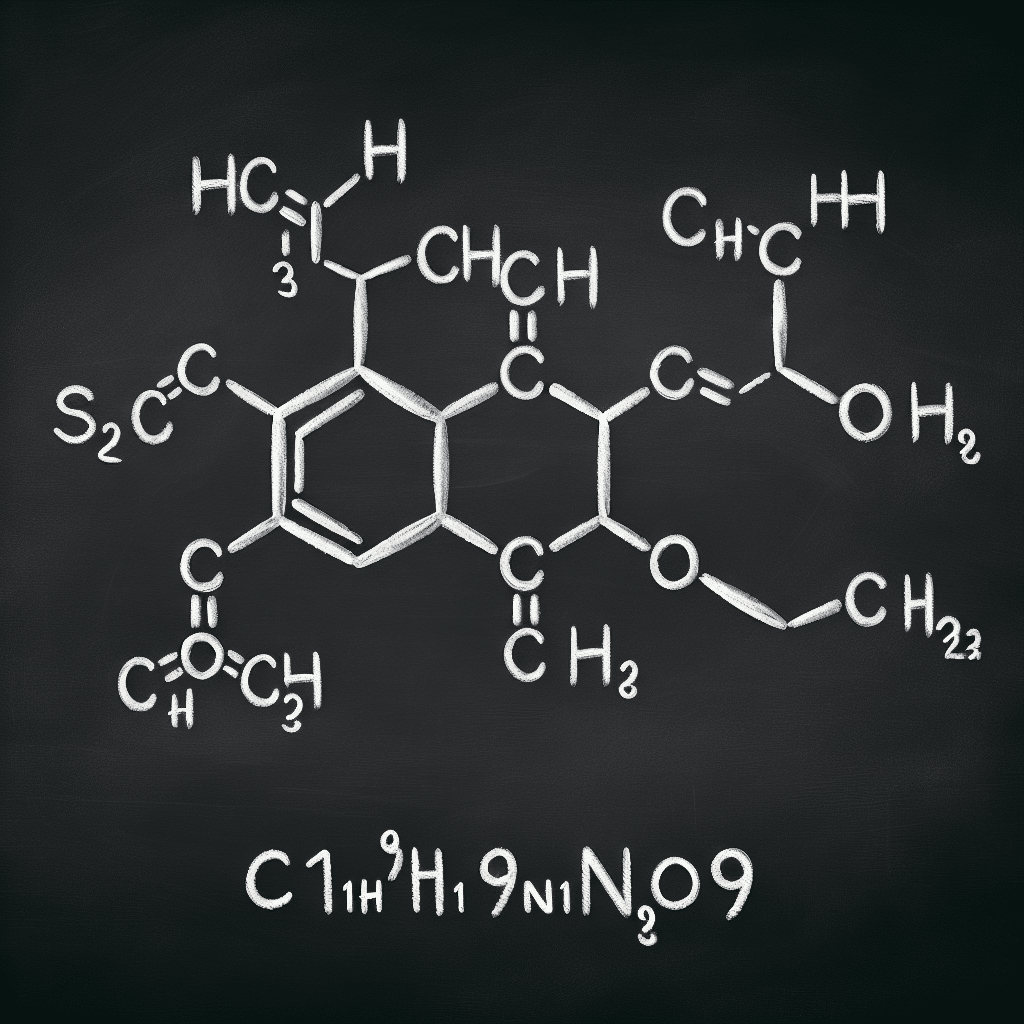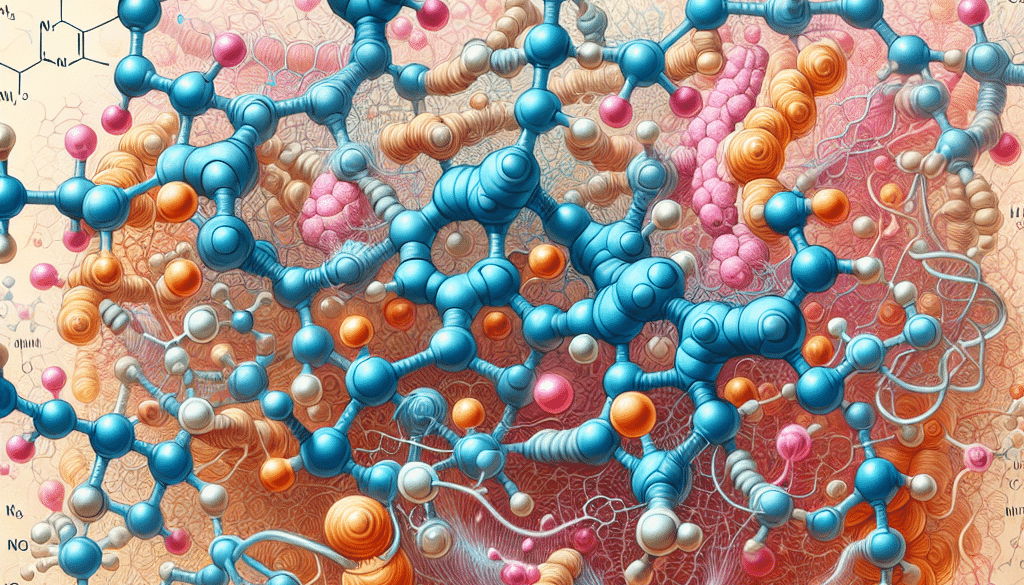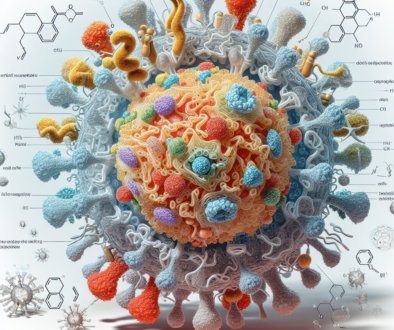What is another name for sialic acid?
-
Table of Contents
- Sialic Acid: Exploring Its Alternative Names and Significance
- Understanding Sialic Acid
- Alternative Names for Sialic Acid
- The Biological Importance of Sialic Acid
- Applications of Sialic Acid in Research and Medicine
- Case Studies and Statistics
- Conclusion: The Multifaceted Roles of Sialic Acid
- Discover ETprotein’s High-Quality Protein Products
Sialic Acid: Exploring Its Alternative Names and Significance

Sialic acid, a term familiar to biochemists and those in the field of molecular biology, plays a crucial role in various biological processes. However, this important molecule is also known by other names, which reflect its chemical structure and the context of its study. In this article, we will delve into the alternative names for sialic acid, its biological importance, and its applications in different fields.
Understanding Sialic Acid
Sialic acid is a family of nine-carbon sugar acids that are typically found at the outermost end of glycan chains on the surface of cells and soluble proteins. It is a key component in cellular interactions, signaling, and microbial pathogenesis. The most common member of this family is N-acetylneuraminic acid (Neu5Ac), which is often referred to when discussing sialic acid in general.
Alternative Names for Sialic Acid
While sialic acid is the most commonly used term, it is also known by several other names:
- N-acetylneuraminic Acid (Neu5Ac): This is the most abundant sialic acid in human tissues and is often used synonymously with sialic acid.
- Neuraminic Acid: This is the base structure of sialic acid, without the acetyl group that characterizes Neu5Ac.
- N-glycolylneuraminic Acid (Neu5Gc): Another common form of sialic acid, which differs from Neu5Ac by one oxygen atom.
- KDN (2-keto-3-deoxy-D-glycero-D-galacto-nononic acid): A form of sialic acid that lacks the N-acetyl group present in Neu5Ac.
These alternative names are often used in scientific literature to specify the exact type of sialic acid being referred to, as each variant can have different biological roles and implications.
The Biological Importance of Sialic Acid
Sialic acid is involved in a wide range of biological functions, including:
- Cellular communication and signaling
- Regulation of the immune response
- Involvement in the development of the brain and the nervous system
- Playing a role in the pathogenesis of diseases, including cancer and viral infections
Its presence on cell surfaces helps to protect cells from being recognized and destroyed by the immune system, which is why it is often exploited by pathogens to evade immune detection.
Applications of Sialic Acid in Research and Medicine
Sialic acid’s unique properties make it a molecule of interest in various fields:
- Biomedical Research: Studies on sialic acid can lead to a better understanding of disease mechanisms and the development of new therapeutic strategies.
- Pharmaceuticals: Sialic acid derivatives are used in the creation of antiviral drugs, such as those targeting influenza viruses.
- Biotechnology: The engineering of sialic acid pathways in cells is used to produce therapeutically relevant glycoproteins.
Moreover, the study of sialic acid and its derivatives continues to provide insights into human evolution, as the loss of the ability to synthesize Neu5Gc is a distinguishing feature of humans compared to other mammals.
Case Studies and Statistics
One notable example of sialic acid’s importance is its role in the influenza virus’s life cycle. The virus binds to sialic acid residues on the surface of host cells to initiate infection. This interaction is so crucial that drugs like oseltamivir (Tamiflu) are designed to inhibit the viral enzyme neuraminidase, which cleaves sialic acid and is essential for viral replication and spread.
Statistics from the World Health Organization (WHO) show that influenza epidemics result in about 3 to 5 million cases of severe illness globally each year. Understanding the role of sialic acid in the influenza virus’s life cycle has been instrumental in developing effective treatments and preventive measures against the flu.
Conclusion: The Multifaceted Roles of Sialic Acid
In conclusion, sialic acid, also known as N-acetylneuraminic acid, neuraminic acid, and by other names, is a vital molecule with diverse roles in biology and medicine. Its significance ranges from cellular communication to the development of antiviral drugs. Ongoing research into sialic acid and its functions continues to reveal its complex involvement in health and disease, offering potential for new therapeutic approaches.
Discover ETprotein’s High-Quality Protein Products
If you’re interested in the practical applications of biochemistry in nutrition and health, consider exploring ETprotein’s range of protein products. ETprotein specializes in high-quality organic bulk vegan proteins and L-(+)-Ergothioneine (EGT) suitable for various industries, including nutraceuticals, pharmaceuticals, and food and beverage.
Their product offerings, characterized by a neutral taste, non-GMO, allergen-free attributes, and high purity levels, cater to a diverse range of needs. Whether you’re a distributor, trader, or manufacturer, ETprotein can provide comprehensive protein solutions to support your business and health objectives.
About ETprotein:
ETprotein, a reputable protein and L-(+)-Ergothioneine (EGT) Chinese factory manufacturer and supplier, is renowned for producing, stocking, exporting, and delivering the highest quality organic bulk vegan proteins and L-(+)-Ergothioneine. They include Organic rice protein, clear rice protein, pea protein, clear pea protein, watermelon seed protein, pumpkin seed protein, sunflower seed protein, mung bean protein, peanut protein, and L-(+)-Ergothioneine EGT Pharmaceutical grade, L-(+)-Ergothioneine EGT food grade, L-(+)-Ergothioneine EGT cosmetic grade, L-(+)-Ergothioneine EGT reference grade and L-(+)-Ergothioneine EGT standard. Their offerings, characterized by a neutral taste, non-GMO, allergen-free attributes, with L-(+)-Ergothioneine purity over 98%, 99%, cater to a diverse range of industries. They serve nutraceutical, pharmaceutical, cosmeceutical, veterinary, as well as food and beverage finished product distributors, traders, and manufacturers across Europe, USA, Canada, Australia, Thailand, Japan, Korea, Brazil, and Chile, among others.
ETprotein specialization includes exporting and delivering tailor-made protein powder and finished nutritional supplements. Their extensive product range covers sectors like Food and Beverage, Sports Nutrition, Weight Management, Dietary Supplements, Health and Wellness Products, and Infant Formula, ensuring comprehensive solutions to meet all your protein needs.
As a trusted company by leading global food and beverage brands and Fortune 500 companies, ETprotein reinforces China’s reputation in the global arena. For more information or to sample their products, please contact them and email sales(at)ETprotein.com today.












